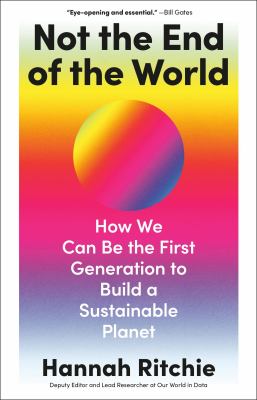In the 6th Century BCE, the Greek philosopher Heraclitus said, “There is nothing permanent except change,” or something to that effect. Not a lot is known about Heraclitus but all these years later, that quote rings true. Change is something you can count on in life, be it good or bad, fast or incremental, painful or joyous. It is constant. How you handle the changes in your life makes all the difference.
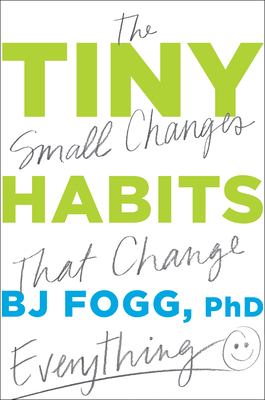
There are different kinds of change, of course. There are changes we make purposely and changes that are thrust upon us. Along the lines of the former, human behavior specialist BJ Fogg, PhD brings us “Tiny Habits: + The Small Changes That Change Everything.” The book recommends tackling habit change through baby steps. According to “Library Journal,” “Throughout are a multitude of practical exercises and more than 300 recipes for tiny transformations categorized by various situations and challenges (e.g., work/life balance, destressing, healthy eating and sleeping well)… Fogg’s method has great potential to promote altered behavior in those who have sought help in other ventures with little success.”
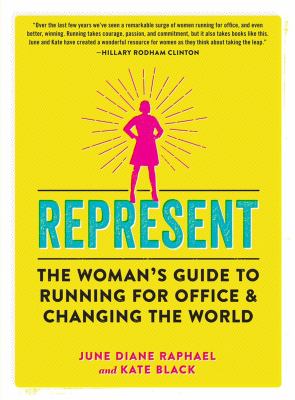
Changes we make by our own choosing include such things as getting a new job, seeing a therapist, changing our eating habits, getting married or divorced and so on. One book sure to inspire any woman who wants to be a changemaker is “Represent: The Woman’s Guide to Running for Office and Changing the World” by June Diane Raphael and Kate Black.This book offers advice for women regarding obstacles they might encounter such as their personal and internet history, practicalities such as checklists for filing deadlines, fundraising goals, what salary one could expect in different states, qualifications, etc. The workbook pages help the reader think through the entire process with questions about your goals, mission, time availability, expenses and who you could count on to help with your campaign. The back of the book even offers ways anyone could help a woman who is running for office.
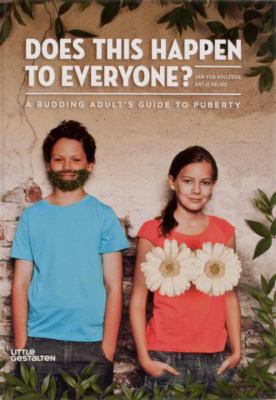
Change is constantly happening to us even if we do not actively participate. The environment is changing, people around us change and we are always growing older, like it or not. Perhaps you have kids who are going through a change. We have books about that. Try, for example, “Does This Happen To Everyone? A Budding Adult’s Guide To Puberty,” by Antje Helms. In it, photo artist Jan von Holleben and writer Antje Helms provide answers to the most important questions about puberty in words and images that are relaxed and uninhibited, yet suitable for children. The book takes questions, worries, and fears seriously and responds to them in a direct, yet sensitive way that anyone can understand. It addresses questions your mother’s puberty books probably didn’t touch upon.
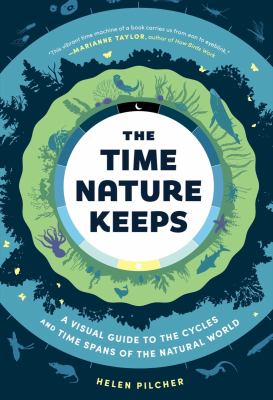
When we are going through our own changes, they can feel all-consuming. In order to gain some perspective, check out a book such as, “The Time Nature Keeps, A Visual Guide To the Cycles and Time Spans of the Natural World.” Evolution is a slow process and this book can illustrate just how slow it is using visual comparisons. These infographics shed light on the truly remarkable range of the natural world — how plants and animals grow and age, sleep and migrate, and reproduce and die. Spanning ideas both big and small — from evolution to animal behavior — “The Time Nature Keeps” is a visual trove of nature’s clocks that brings the world’s cadences to life before our eyes.
Let’s switch gears a little. Perhaps YOU are going through a change, or more to the point, perhaps you are going through THE change. That’s fun. Doctors can often be unhelpful with this topic. You might need to do some research for yourself. We have books for that, too! Try “See Ya Later, Ovulator!” The book promises to help with advice on finding out your hormonal baseline, supportive supplements, exercises to increase energy, and the best diet to lose the “Menopot.” It has a long list of resources at the back, too, to help with lifestyle support.
Finally, let’s look at a very big change, climate change. Many find this topic overwhelming or even hopeless. Hannah Ritchie’s book, “Not the End of the World, How We Can Be the First Generation to Build a Sustainable Planet,” argues that we can still effect positive change. Through the use of research, data-sets and graphics, Ritchie guides readers towards meaningful actions for ecological problem-solving. Kirkus Reviews says, “Ritchie makes clear that she is a firm believer in climate change; her thesis is that improvements have happened, and should continue to happen, through concerted action at the government and regulatory levels, as well as technological advances. Hand-wringing and whining get you nowhere, and the author points to problems that have been addressed — e.g., acid rain and the deterioration of the ozone layer, to show that cooperative answers are achievable.”
Maya Angelou is quoted as saying, “If you don’t like something, change it. If you can’t change it, change your attitude.” One of the best ways to take control of the change in your world is through educating yourself. The library has plenty of books to help you learn more about many topics. Through February 15, some of these will be on a second-floor book display at the Columbia Public Library called, “Ch-ch-ch-changes.” Come check it out!

